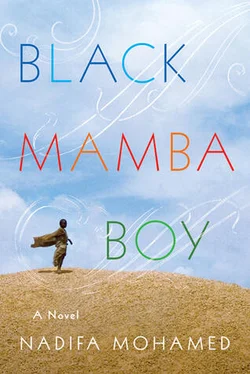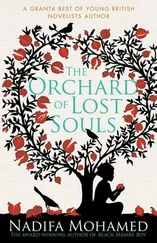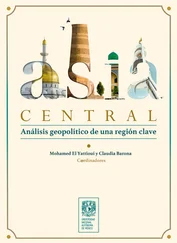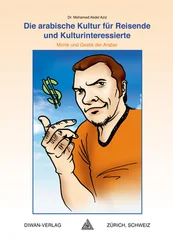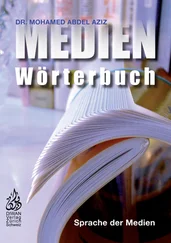“Are you serious about me, Jama? Or are you just playing? Will you marry me?” Bethlehem asked, cold and shivering.
“Yes,” replied Jama, putting an arm around her shoulder.
They made a loveseat out of the living rock and imagined their new life together as rain washed the old world away. Looking over them, however, was Rumor, she who flits between sky and earth, who never declines her head in sleep, and with swift wings she took flight to disturb the repose of the villagers.
When the midday sun had burned away the clouds, Jama, Bethlehem, and the goats returned to Gerset, to stares and whispers. Bethlehem kept her head high, believing herself to be practically married. She left Jama by his field and went home. Her mother was sweeping goat droppings away from their door.
“What took you so long, Bighead? You should have come home before the rain started.”
“Mama, Jama and I are going to get married,” Bethlehem announced.
Her mother screeched and threw away the broom. “What is this! What will people say? Your father’s poor old heart! Why can’t you wait for your sisters to find husbands first? What have you done?”
“Nothing, Mama, we just agreed,” Bethlehem stuttered.
“You will decide nothing without consulting me. I don’t want that little Somali sniffing around you, people are already talking, you don’t know anything about him, so just stay away.”
Bethlehem didn’t stay away. She went to Jama’s fields and helped him, he watched as she demonstrated how to pick out weeds and check for blight. The earth was pregnant with so much produce that, come harvest time, Jama employed two more female laborers, offering them a share of the crop in return. Bethlehem was paid too and her mother walked her to the field and collected her at dusk, but all day the lovebirds could twitter as much as they wanted. He described the Ferengi ships docked in Aden, the slaughterhouses of Hargeisa, and the markets of Djibouti. He did not have to describe Keren to her; the silver markets still glinted in her mind from her trips there as a child. Jama spoke about places but he didn’t speak about people — all the places he described were ghost towns that he traversed alone. He never mentioned Shidane or Abdi, but they were there in his stories, imperceptible shadows that walked beside him. There was a moment at dusk when a cool breeze blew, the leaves shook and rustled, and Bethlehem stretched her back in front of a golden sky, that made Jama melt; but within moments Bethlehem’s mother would arrive and march her home, leaving him to his thoughts as he rode his borrowed mule to Focka. On melancholy evenings, the scrub a dark green and the rocky paths a subdued blue, his mind dwelled on those he had left behind. He hoped to return one day, atop an unblemished racing camel, and visit Jinnow and Idea with gifts of gold, myrrh, and silk. He planned to either return in triumph or not at all. On the back of the mule he conducted imaginary conversations with Idea in which he told him about the Italians, their punishments, their arrogance, their cruelty, and Idea listened closely while stirring a pot, shaking his head in bitter sympathy.
The harvests were greater than they had ever been, and the women of Gerset showed exuberant gratitude, bringing to Jama’s tukul a goat, blankets, sorghum porridge, figs, all of life’s little luxuries. Jama’s own sorghum plants towered so high and so strong that twenty women were brought in to help cut them down. Even Bethlehem’s mother came to him bearing eggs, and she smiled tentatively, appraising him all the time. Jama surreptitiously kissed the amulet around his neck; the magic the women saw in him was nothing more than what his mother could scatter on him from above.
The harvest was so abundant that Jama could pay Awate to look after the store in Focka, saving him the backbreaking donkey ride every day. The thud of sorghum being pounded in stone mortars followed him everywhere. The smuggling trips to Sudan continued but now he could pay for more expensive items: petrol, silver, cooking pots. He was the wealthiest man in Focka, and the second-wealthiest after Bethlehem’s father in Gerset, although he had plenty of weight to gain before he matched that rotund figure. Jama was almost complacent about his talents now. He thought all he needed to do was throw a few seeds in the earth and he would be richly rewarded. Bethlehem became the lady of the manor, watching over the women, overseeing their work, tutting and clucking around them until they complained to Jama. The sorghum grew tall and straight and shivered and sang in the breeze. Young men came to admire his fields and store because he was the boy their mothers told them to emulate. They looked on in wonder as the crowds of women — their aunties, sisters, girlfriends — huddled around the tukul of the thin, long-limbed foreigner, vying for his attention in loud voices.
Amid all the flattery, Jama could not hear the whispers of locusts flying toward Gerset. Millions upon billions traversing the miles with a blind hunger fell upon the village without warning. The ugly warriors from the Nile Valley ate the crops, the roofs of tukuls, ate through baskets to get at hidden grains and pulses, ate the food out of children’s mouths, and what they didn’t eat they maliciously defecated on, poisoning everything. Jama tried to throw cloths over his crops but the locusts ate the sheets as he laid them down, and his workers ran away to save their own fields, lunging at the insects with torches. Within hours all that was left of his farm were stiff stubs where the sorghum once stood and piles of locusts that had died in the frenzy. Jama ran through the ravaged village, staring dumbfounded as he went from field to empty field. The women screamed and rent their clothes, but it was too late to pray, to do anything. By the next day, every farm had been ruined; children would go unfed, debts unpaid; animals would have to be slaughtered before they starved to death. In his mind Jama canceled the debts that the distraught women owed him.
He went to find Bethlehem in the hills; even the grass was gone. She ran to him. “I saw them from here, I was so frightened I thought they had eaten everyone! They blotted out the sun, Jama!” She had been crying.
“They have destroyed everything we worked for,” Jama said, taking her hand. He walked her back to Gerset to see the damage.
It was a backward miracle, something made into nothing, and the suddenness of the destruction kept women wailing in shock. They believed in discipline and patience but that didn’t seem to matter now, when bounty could be reduced to penury in the blink of an eye.
Jama and the women of Gerset put their shoulders to the plow and worked from dawn to dusk collectively. They plowed the stalks, sowed the few seeds they had saved, and smoothed manure over the earth. They sang defiant songs of Kunama unity and sisterhood to raise their spirits, heckling when Jama tried to sing along with them. Bethlehem was relieved of her shepherdess duties, and she and her mother worked side by side in Jama’s field as well as in the others. There was no joy in the work, only furrowed eyebrows and dirty hands. Jama had lost most of his appeal to the women but a modicum of magic glittered around him, and they kept him as a totem of former hope. Bethlehem became desperate and fearful, worried that the man she loved would fail again. The month of the long rains was late coming, but then came a sickly, squalid deluge that formed stagnant pools in which mosquitoes copulated and multiplied. Jama’s malaria had come back every year since he had been infected in the askari camp in Omhajer, but this year he was as weak as an old man. Bethlehem’s mother advised putting a cup of sugar in water, leaving the mixture in moonlight, and drinking it in the morning, but it just gave him nausea and sore teeth. Many people were falling sick. Bethlehem collapsed at the farm and was carried home. When she returned to work, she told Jama that a medicine man had been sent for. He had asked her where the pain was, she pointed to her stomach, and he bit it, so hard that he had drawn blood, which he spat out and read for clues. To her shame he diagnosed lovesickness and said he had no cure for that. Fortunately, the people were agitated and distracted from everyday gossip. They consulted oracles, sacrificed livestock, prayed to their goddess, but they were not heeded. Like a curse, locusts again darkened the sky. In one day the second harvest was destroyed and Gerset beggared.
Читать дальше
Конец ознакомительного отрывка
Купить книгу
